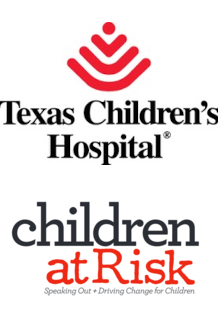Abstract
This study was designed to determine if the professional social work education provided by Title IV-E stipends leads to better case outcomes for children serviced by a southern state in the U.S. Desired case outcomes included lower levels of recurrence of child maltreatment, lower levels of foster care re-entries, greater stability of foster care placements, more reunifications with families within 12 months of placement in foster care, and more adoptions within 24 months of being placed in foster care. Data were obtained from the state’s case outcome records. The findings from the study indicate that Title IV-E stipend workers had significantly better outcomes than Non-Title IV-E workers in two areas: reunifications within twelve months and finalized adoptions within twenty-four months. In addition, non-Title IV-E workers with social work degrees were significantly more likely to achieve positive outcomes regarding recurrence of maltreatment, stability of foster care placement, and length of time to achieve adoption. The study recommends that state child protective service (CPS) agencies continue to offer Title IV-E child welfare training programs and hire degreed social workers. CPS should also continue to support the Title IV-E program and encourage employees to participate in the program. In addition, it is recommended that jobs be restructured to maximize activities that positively impact case outcomes and that the salaries of CPSworkers be increased. Additional research should also be conducted to contribute to a better understanding of other factors that positively impact case outcomes.
Key Take Away Points
- This research is based on the definitions published in Child and Family Services Review to determine success for Title IV-E case outcomes. Data were obtained from a southern state in the U.S.
- Findings support that Title IV-E stipend workers had significantly better outcomes than Non-Title IV-E workers in two areas: reunifications within twelve months and finalized adoptions within twenty-four months.
- Findings also show that non-Title IV-E workers with social work degrees were significantly more likely to achieve positive outcomes regarding recurrence of maltreatment, stability of foster care placement, and length of time to achieve adoption.
- The study recommends that state child protective service (CPS) agencies continue to offer Title IV-E child welfare training programs and hire degreed social workers.
Author Biography
Patrick Leung, PhD, Professor, Director of the Office for International Social Work Education and former Doctoral Program Director at the University of Houston Graduate College of Social Work (UH-GCSW), teaches program evaluation, research methodology, survey design and doctoral level multivariate statistics. Currently, he is the Co-chair of the Texas Title IV-E Child Welfare Roundtable Evaluation Committee and is the immediate past President of the Asian & Pacific Islander Social Work Educators Association. His research areas include cultural sensitivity training, Asian mental health issues, children and families, immigrant issues, domestic violence, and gerontology. He received his PhD, MSW, MA (Public Administration) and BSSW from The Ohio State University. He has served as principal investigator and evaluator on numerous projects at the federal, state, and local levels and has been a grant reviewer for ACYF (Administration for Children and Family, DDHS) and CSAP (Center for Substance Abuse Prevention, SAMSHA). He has published over 122 articles, book chapters and reports, and has made over 113 presentations at international, national and local conferences. He has served on many boards of directors, and is the President Emeritus and a co-founder of the Asian American Family Services (AAFS) in Houston, Texas. He is co-author of two books titled Child Protection Training and Evaluation and Multicultural Practice and Evaluation: A Case Approach to Evidence-based Practice.
Nicole Willis, PhD, is Assistant Professor at the Department of Social Work, Texas Southern University.
Acknowledgements
The authors would like to thank the following individuals for providing support and guidance to the research project: Marian Aguilar, Carol Allen, Donald Baumann (former Co-Chair), Brock Boudreau (current Co-Chair), Karen Brown, Sonja Berry, Karen Brown, Shelly Bucher, Kelli Connell-Carrick, Nancy Chavkin, Michael Crosby, Rowena Fong, Jennifer Graham, Pamela Higgins-Saulsberry, Annette Hodges-Brothers, Peggy Pittman-Munke, Patricia Newlin, Pat Page, Joe Papick, Jenny Savage, Maria Scannapieco, Jim Schwab, Charlene Urwin, and Elaine Waters. Please address all correspondence to Patrick Leung at: pleung@uh.edu
Recommended Citation
Leung, Patrick and Willis, Nicole
(2012)
"The Impact of Title IV-E Training on Case Outcomes for Children Serviced by CPS,"
Journal of Family Strengths: Vol. 12:
Iss.
1, Article 9.
DOI: https://doi.org/10.58464/2168-670X.1142
Available at:
https://digitalcommons.library.tmc.edu/jfs/vol12/iss1/9


